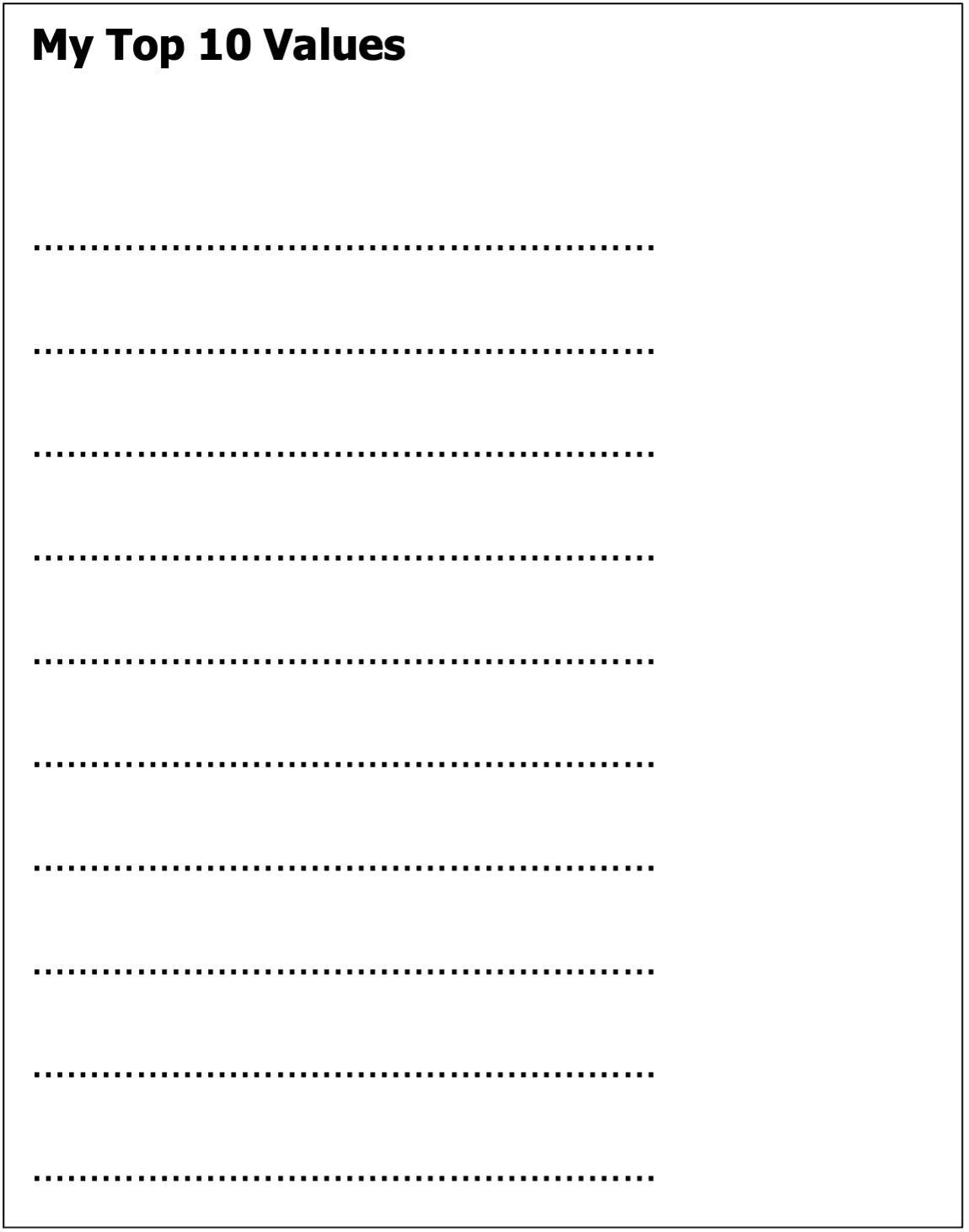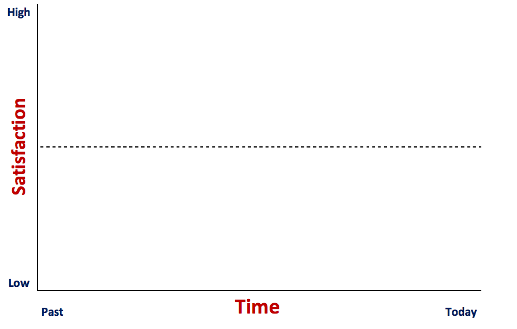“It’s not hard to make decisions once you know what your values are” - Roy. E. Disney.
Our values influence what we do, how we think and how we feel about the world around us. When we do or see things that go against our values we feel compromised and have strong emotional responses such as sadness, frustration or even anger. We can become dysregulated, stressed and this affects our performance. When we live life in a way that aligns with our values we feel authentic, fulfilled and happy. We become regulated and integrated.
Understanding your values enables you to understand what drives and motivates you and clarifies what and who you want to avoid in life. Clarity can help you to choose roles, activities and people that encourage you to be your Highest Potential Self.
Your values may change over time, as you develop and grow. This exercise will give you your core values as you are at this moment in life. It is worth reviewing this exercise every few years to check in with your core values, particularly after major events in your life which may influence the way you view life.
Try this exercise to find your values
Step one
Firstly, simply think about your life experience and use this to drive out some initial value ideas.
It can help to think about this based on a timeline of your life. What were the particularly low or highly satisfying times of your life?
Draw this chart and using your gut instinct plot with an X the most meaningful moments. Use the guidance below to help with this.
High Satisfaction Experiences
Consider the times when you were highly satisfied - positive experiences that stands out…
- What was happening to you?
- What was going on?
What values were you honouring then?
Low Satisfaction experiences
Now, go in the opposite direction; consider a time when you got angry, frustrated, or upset.
- What was going on?
- What were you feeling?
Now flip those feelings around. What value was being suppressed?
Once you have have considered these meaningful moments. Brainstorm your Values in Step 2
Step two - write down all your values
DON'T:
- Worry about whether it's a 'value' right now, just use whatever words or phrases make sense to you
- Judge your answers - or 'cherry-pick' values you think you should have.
Step three - categorise your values into related groups
Combining all the answers from step 2, you now have a master list of values. Maybe there are between 20 and 50 values on your list. That’s too many for you to work with.
Your next step is to group these values under related themes.
- Values like accountability, responsibility, and timeliness are all related.
- Values like learning, growth, and development relate to each other.
- Connection, belonging, and intimacy are, too. Group them together.
What common themes do you notice? Identify these themes and list up to 10 Core Values

Step four - prioritise your values
For each value ask yourself the following questions to help you reduce this list to just your top 3 to 5 core values. It may help to talk to a friend or coach to walk you through this.
- What is really important to me about that? Look for deeper values.
- Could I live without it?
- Does it compel me even in the face of adversity and difficulty?
Now write down your top 5 values and create a definition for each one which is meaningful to you.
Step five - alignment of values
This is the really interesting bit!
For each of your top 5 values I want you to consider how aligned you are in your actions and behaviour.
- Not at all
- Somewhat
- Mostly
- Very aligned
Use this scale to rate your current alignment to these Core Values and consider the questions in step six.
Step six - review and wrap up
Answering these questions will help you gain the most from completing this exercise.
1. What did you learn about yourself during this exercise?
2. What could you do differently to align your life (even) more with your values?
- What could you stop doing?
- What could you do less of?
- What could you do more of?
- What could you continue doing?
- What could you start doing?

